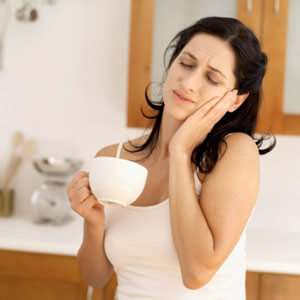Teeth Grinding Treatment
at Albany Place Dental Practice
 The medical term for teeth grinding is bruxism. Bruxism refers to excessive clenching or grinding of the teeth that is not a part of normal chewing movements. It can lead to excessive wear on the teeth and may cause permanent damage to the teeth and the jaw joints. Teeth grinding can occur in both adults and children.
The medical term for teeth grinding is bruxism. Bruxism refers to excessive clenching or grinding of the teeth that is not a part of normal chewing movements. It can lead to excessive wear on the teeth and may cause permanent damage to the teeth and the jaw joints. Teeth grinding can occur in both adults and children.
Why Do We Grind Our Teeth?
While there is no right or wrong answer, we know that many patients grind their teeth due to:
- Attempting to ease pain
- Stress induced
- Mis-alignment of upper and lower teeth
What are the Signs and Symptoms of Bruxism?
Common symptoms include:
- Teeth that become painful and sensitive to heat and cold
- Intense muscle contractions may lead to chronic facial pain and tension headaches
- Partners, friends or relatives, may notice the noise that occurs as the teeth are ground together
- Tooth surfaces may became flattened and worn, which may reveal the underlying yellow dentine layer
- Micro-fractures of the tooth enamel may occur
- Broken, loose or chipped teeth
- Stiffness and pain in the jaw joint muscles can cause restricted opening and difficulty chewing. Sometimes, the tempero-mandibular joint (TMJ or jaw joint) may suffer damage that is slow to heal
- Earache or pain in the jaw joint may occur
The variation in signs and symptoms reflects the strength of clenching and grinding involved in bruxism. People who clench their teeth tightly may experience tension-related headaches, but may have little or no damage to the teeth or jaw joint. Those who experience severe grinding may have damaged teeth and jaw joint problems. People with mild tooth grinding may have worn tooth surfaces but no jaw joint pain or tooth sensitivity. These individuals may not realise that they suffer from bruxism.
Correcting Teeth Grinding
At Albany Place Dental Practice, our caring team can help you overcome nighttime teeth grinding to:
- Remove the causes of bruxism
- Change the behaviour that causes bruxism
- Repair the damage that bruxism often causes
Changing Bruxism Behaviour
An occlusal splint or night guard is an option for someone with mild to severe grinding behaviour. Worn at night, the splint is made from moulded hard plastic that fits over the upper or lower teeth. It prevents further wear of the tooth surfaces.
Does Teeth Grinding Cause Damage?
Generally teeth grinding does not cause damage to teeth. However, there is always the exception, and in some cases an individual may grind their teeth for an extended period of time, potentially causing excessive wear of their teeth. As a result, teeth may appear shorter, more sensitive (as the enamel layer has been worn) and possibly loose.
Repairing Damaged Teeth
Treatment may be necessary to repair damaged teeth using dental fillings, crowns or inlays to replace damaged tooth surfaces. Where tooth fractures extend into the pulp, root canal treatment may be required. In some cases, extraction of badly damaged teeth may be the only option. The dentists at Albany Place Dental Practice can discuss with you replacement options including implants, bridges or dentures.
Learn How We Can Help
If either yourself or your child are grinding their teeth, make an appointment at Albany Place Dental Practice. We will check for any non alignment of teeth, inflammation of the gums and the general state of your teeth in terms of any wear caused by the teeth grinding. The dentists at Albany Place Dental Practice may prescribe painkillers for muscular facial pain, headaches and jaw joint pain.
Discover how we can help by booking your appointment with us today!
CONTACT US
![]()
